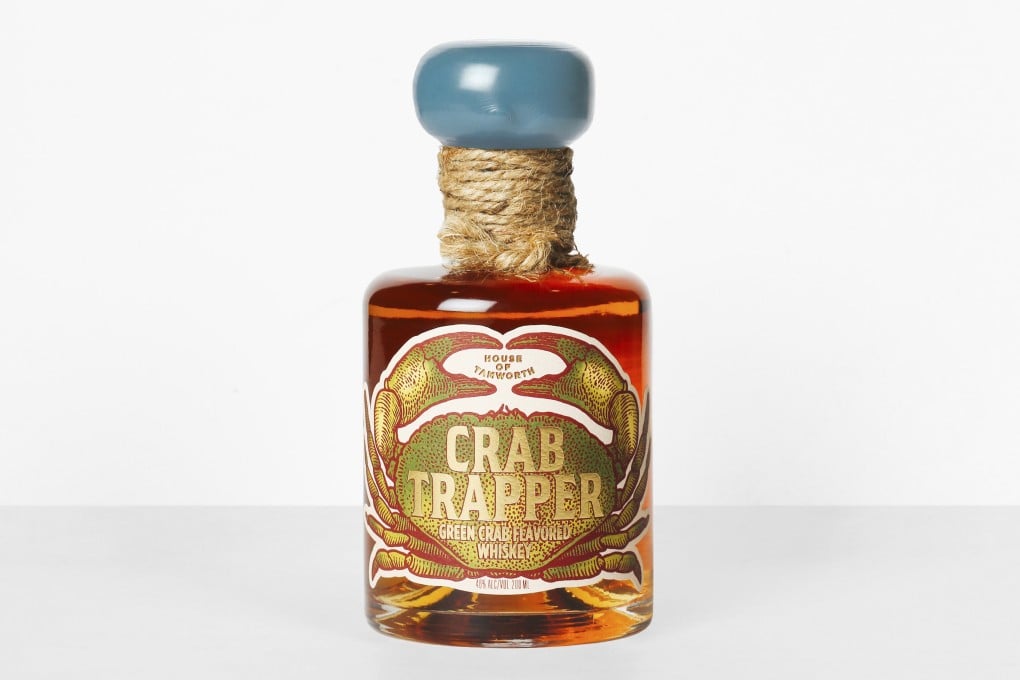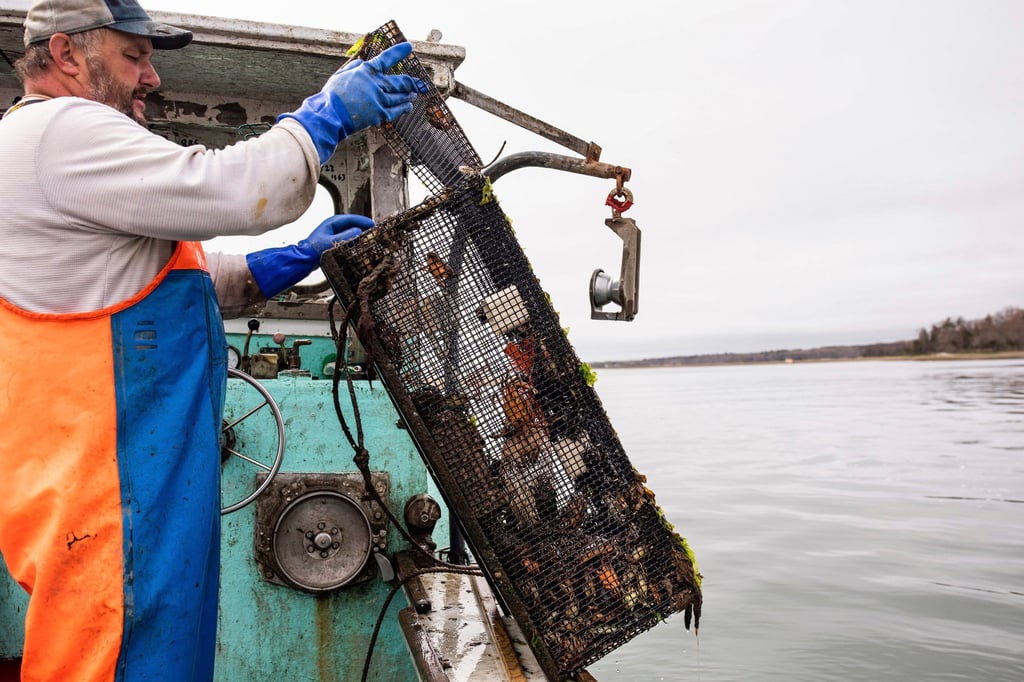After durian whiskey comes crab whiskey from a US distillery known for eclectic craft spirits
- Tamworth Distilling in New Hampshire, USA, has unveiled its latest release – whiskey flavoured with invasive green crabs
- Tasting notes released by the distillery include maple, vanilla, oak and clove – but thankfully, no hint of shellfish

A New Hampshire distillery has come up with its latest concoction, called “Crab Trapper” – whiskey flavoured with green crabs that are an invasive species.
Tamworth Distilling, a maker of craft spirits in the northeastern US state, is not afraid of pushing boundaries with unexpected flavours. In the past, the distillery produced a whiskey with the secretion from beavers’ castor sacs. Last year, it was turkey over the holidays and before that the notoriously pungent smell of durian.
The company said the body of this peculiar brew has hints of maple, vanilla oak, clove, cinnamon and allspice. And no, you won’t get any crab legs in the drink.
Why did the company choose green crabs?

Searching for a fresh flavour, Tamworth Distilling cast its eye to the sea. Distiller Matt Power said the company heard about the problems caused by the invasive green crabs from the University of New Hampshire Extension’s Gabriela Bradt.
The crabs, which came over on ships from Europe in the mid-1800s and landed on Cape Cod, have taken the region by storm. These saucer-sized crustaceans with a murky green colour have decimated the area’s marine ecosystem, outcompeting native species for food and shelter.
Bradt, a fisheries extension specialist, said the crabs are “so numerous that they have really impacted shellfish habitats and fisheries because they are also voracious predators”. A good example, she said, was the softshell clam fishery, which has suffered millions of dollars in losses.
How do you make crab whiskey?
